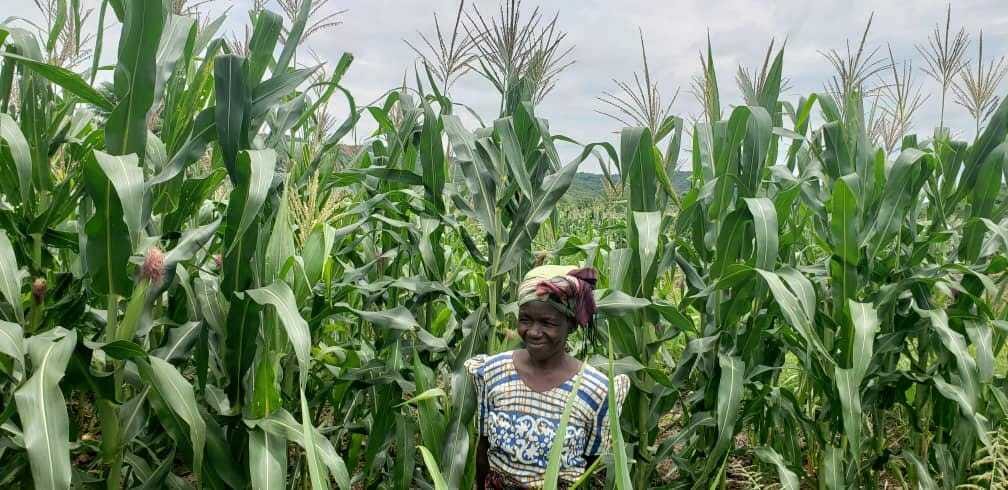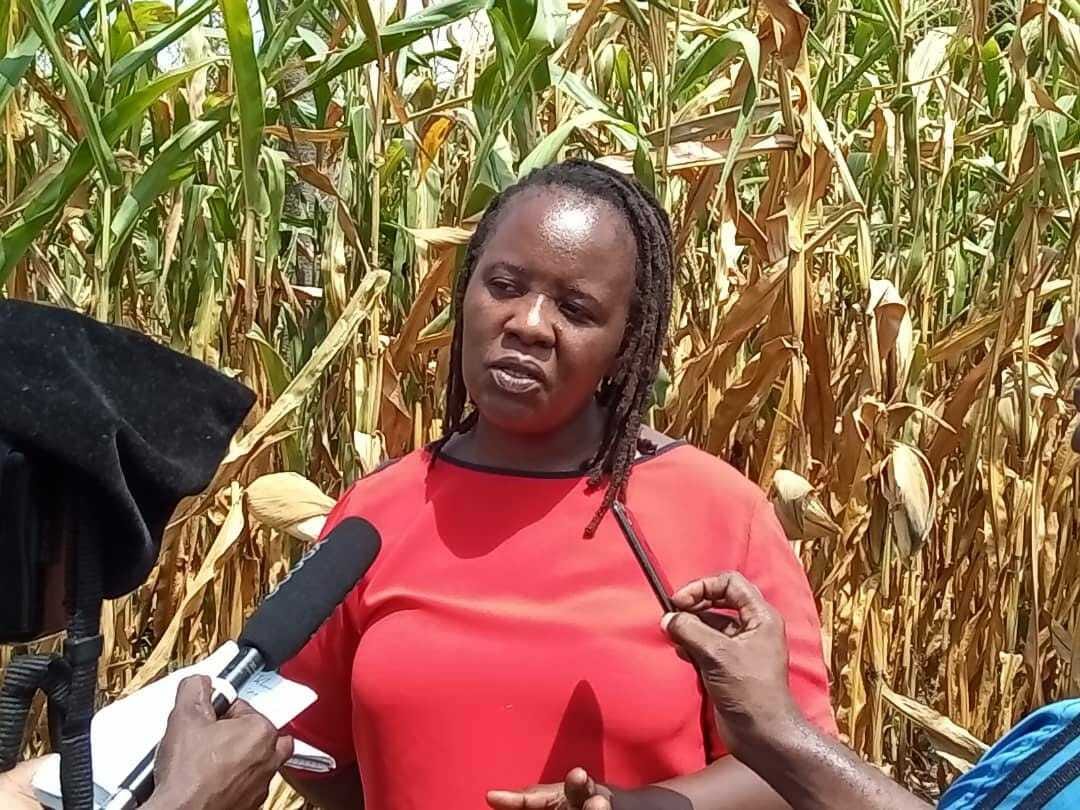
Malawi-The 2022–23 growing season started on a promising note for Smith Kalambo, 60, of Lasha Village, Traditional Authority (T/A) Kyungu in Karonga, writes Tiwonge Kampondeni, MANA.
The forecast gave Kalambo the courage to prepare most of his land, which he had not been able to use in previous years. He planted different crops, with maize dominating.
Kalambo thought he had prepared well enough for a bumper yield until the dry spell began to hit most parts of Karonga district very hard. Kalambo has lost almost all his crops to these dry spells.
"For over a month, we did not experience good rains. Unfortunately, that was the time I applied my second fertilizer. Two weeks passed without any rains, and then we had some showers, which were followed by another two weeks of dry spells. My crops are affected especially maize," Kalambo said.
Kalambo's field is a sorry sight of water-stressed, dull green crops, droopy with curled leaves.
"My land is over five acres. As you can see, apart from sesame, beans, and cassava, my main focus was on maize. I am not sure if I will be able to harvest anything," Smith lamented.
Though they stay over 80 km apart, Kalambo's story is similar to that of Elina Msiska, 32, a mother of eight from Village Mwakhwawa, in TA Wasambo.
"Look at my field, everything is gone. My family spends days without a proper meal. It is tough, I don't have money to buy food. Previously, I would do part-time work in people's fields, but with the dry spells, all the fields are dry," Msiska said.
Kalambo and Msiska's stories apply to many farmers in Karonga, especially those who are still using conventional ways of farming. A few farmers, like Chuma Chithu Farmer Field School (FFS) members, who have adopted climate-smart agriculture, have a different story.
Chuma Chithu, a women's group, has since last year been working on finding solutions to their farming challenges.
They are experimenting with technologies that are resilient to climate change, like the use of different types of manure through their Farmer Field School.

The Farmer Field School is a participatory education approach that brings together a group of small-scale farmers to find a localized solution to a particular need in their area through good agricultural practices.
"We have four plots, the first plot applied with 'Chinadango' manure, the second applied with 'Bokash' manure, the third is applied with 'khola' manure, while the fourth plot is a control and is not applied with any manure. Each plot used different types of manure. The objective is to compare which of these types of manure is best suited for maize in our area. Coincidentally, this year we have dry spells, and we are happy that our maize is not affected at all," said Jane Masingi, Treasurer of Chuma Chithu FFS.

To enhance resilience to the adverse effects of climate change, farmers like Frank Khunga from TA Kyungu are practising conservation agriculture (CA).
Khunga also adopted early maturing varieties of maize to shorten the cultivation period as well as make use of short-duration rainfall. He also planted with the first rainfall.
"We had the first rainfall on December 1, 2022, and I planted on December 2. I used an early maturing variety, and by the time we started having dry spells, my crops were well advanced, so I haven't been affected much by the dry spells," Khunga said.
Apart from conservation agriculture, Khunga was also able to follow other climate-smart technologies like the use of manure and crop residue incorporation to conserve soil moisture.
"I started with manure and only applied a small amount of fertilizer later. I am happy that my maize is ready to be harvested," he said.
The story of Chuma Chithu Farmer Field School and Khunga illustrates how climate-smart agriculture technologies are building the resilience of farmers in a changing climate.
According to a Karonga District Council report, the dry spell has affected 8,742 hectares of maize (35.5% of the total estimated area under maize) 29,718 farming households. Total production of 16,040 metric tonnes of maize has been lost.
"Rice has a total of 10,752 hectares affected (81.5% of the total estimated area that was to be planted) with a production loss of 33,059 metric tonnes. A total of 1,444 hectares of groundnuts, (31.7% of the total estimated area) with 4,413 farming households has also been affected, as well as 59 hectares of burley tobacco for 219 farming households," the report said.

"For farmers who strictly adopted different smart agriculture technologies, there is hope that they will harvest something, but for those who did not, signs are clear that they might have lost their crop," said Kufasi Sheila, Chief Land Resources Conservation Officer for Karonga Agriculture Development District (ADD).
According to Sheila, the Ministry of Agriculture does not offer a one-size-fits-all solution, but farmers are at liberty to choose from several alternatives depending on their geographical position, financial status, and the crop.
Karonga District Director of Agriculture Environment and Natural Resources, Raphael Mkisi, said farmers are encouraged to practice climate-smart agriculture as it helps conserve moisture, which is critical for crop survival during dry spells.
Mkisi also urged farmers in the district to grow crops like cassava and potatoes that are drought-tolerant and also as a way of diversifying their crops.
"The meteorological department forecast indicated that Karonga would experience a dry spell of about two weeks, but instead, some areas did not have rainfall for a month," the report said.
Stywell Chirwa, the Agriculture Extension Development Coordinator (AEDC) for Vinthukutu Extension Planning Area (EPA), stated that the area has 14,531 farming families and over 10,000 of them have been affected.
According to Chirwa, the dry spell has destroyed over 2,000 hectares of maize and over 100 hectares of rice in the area.
"Most of the areas did not receive rainfall in February. On average in February, we had two rainy days, and the amount we received was too small, less than 20mm. Karonga is a very hot area, so we have been experiencing very hot dry spells, and most crops could not withstand the heat," Chirwa said.
Agriculture plays a central role in Malawi's economy, accounting for 36% of GDP and 87% of total employment. It remains one of the essential sources of income, accounting for 65.3% of the total income of the rural poor.
Agriculture is also crucial in achieving the second UN Sustainable Development Goal of zero hunger by 2030. In the 2021-22 season, over 3 million people were declared food insecure. To ensure a food-secure future, farming must become climate resilient.